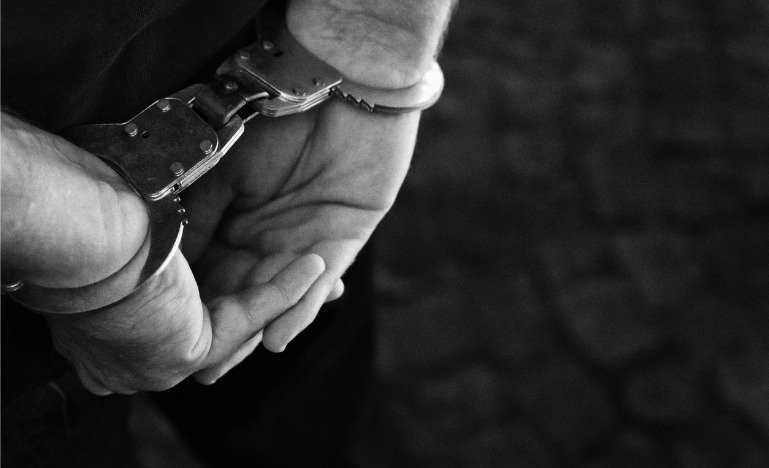Criminal justice and the Canadian election
The parties have barely mentioned it. Here's what their platforms have to say.

With just days to go before election day, we've spent a lot of time talking around justice issues during Canada's 44th general election —and not a lot of time actually talking about them.
Over a brisk and contentious campaign, the leaders have unveiled plans for criminal justice reform, should they be elected. You'd be forgiven for not hearing about them, as they have rarely been front-and-centre of the race, however.
"Justice has always been a wedge issue, I find, between the left and the right," says Tony Paisana, a partner at Peck and Company. "[But] this year, less so than ever before."
Justin Trudeau's Liberal Party has pledged a predictable set of policies, keeping in line with six years of modest reform.
If re-elected, his government would put more money into legal supports for racialized communities, beef up prohibitions for hate speech, and expand access to pardons. It's expected that the Liberals will also bring back their much-vaunted bill C-22, which would abolish a host of mandatory minimums and expands access to conditional sentences. These measures have been billed as a way to counter a sentencing regime that has focused on punishment through imprisonment in a way that disproportionately affects Indigenous peoples, Black and marginalized Canadians.
The Liberals are also promising to re-constitute the Law Commission of Canada, an independent advisory body tasked with recommending reforms to a suite of laws and regulations—until it was axed in 2006.
"That is probably the single most promising reform in all of these lists," Paisana says.
The Liberals' competitors, meanwhile, have pursued a less-traditional approach. Erin O'Toole's Conservative Party is steering away from pitching tough-on-crime measures that have become a mainstay of his party's approach to criminal law.
The Conservatives would create a dedicated list of "criminal gangs," akin to how Canada lists terrorist entities, which would make it easier for Crown attorneys to prosecute organized crime cases. It also promised to sentence human trafficking cases more aggressively.
For no one to be promising new mandatory minimums comes as a relief to criminal lawyers everywhere. As Paisana notes, there are already "countless Charter applications" seeking to strike down the existing mandatory minimums.
At the same time, Paisana says, further efforts to beef up criminal prohibitions on guns and gangs are likely to have diminishing returns. "How many different ways can we criminalize and rearticulate gun violence?" He told CBA National. "At a certain point, we have to come to the realization, like in many other areas of society, that the Criminal Code has its limitations in terms of its ability to solve problems."
Rounding out the pack, the NDP and Greens are each proposing a fairly radical overhaul of the justice system: The NDP proposes removing most mandatory minimums and forming a plan to address the over-representation of Black and Indigenous peoples in prisons. The Greens would pull some funding from the RCMP and point it towards programs proven to reduce crime, while taking a more mental health-oriented approach to the justice system. Both parties would decriminalize possession of currently illicit drugs.
Unfortunately, says Paisana, there hasn't been more uptake on the idea of decriminalization. "The time has come to seriously consider that proposal and what it might mean," he says. "I think it's beyond debate now that our current response, in the Criminal Code, to the opioid crisis — that is, deterrence, criminalization, and punishment — is not working, and in fact, probably exacerbating the problem."
All of these questions have been litigated and re-litigated to a great extent in recent years. But Paisana picks up on a new trend that is emerging from these platforms. "What I did find interesting — that's spoken about by all four different parties in different ways — is the concept of record-keeping in the criminal justice system," he says.
The NDP would ban police carding, limiting the information that cops can enter into their databases on individuals. The Liberals would expand access to pardons. Meanwhile, the Conservatives would make it easier for cops to disclose someone's criminal past in the context of domestic violence.
As police databases become more and more robust, this topic will play a growing role in the political arena, says Paisana. How much information should police be allowed to retain? More importantly, when should they be allowed to use it?
Paisana notes that civil liberties organizations and the Canadian Bar Association have been raising these questions. "In particular, the dissemination of non-conviction records has been an issue that I've been personally working on for a number of years that's of significant importance to Canadians," he says. "I think because, again, impacts their day-to-day lives."
It's increasingly common for information to pop up on police background checks, which is required for many jobs, "even though they've never been convicted of anything," he says.
Paisana says it's time the parties start putting up guardrails for exactly when and how police can obtain, preserve, and disclose that sort of information.
Overall, though, Paisana points to a growing consensus amongst all the parties. The Conservatives are no longer putting faith in the idea that extending prison terms will reduce crime. The Liberals have, after years of promises, moved forward on dismantling the tough-on-crime regime. The NDP and Greens are leading the charge on more expansive reductions in criminal law.
In the end, criminal justice may not have lit up the campaign trail. But it has proven to be a sleeper issue.


